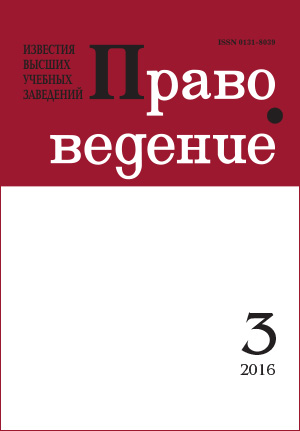The right to be forgotten: actual regulation and its theoretical reflection
Abstract
The reason for writing this article was the enactment of new laws to protect the right to be forgotten first in the Russian Federation (2015) and then in the European Union (2016). The article discusses in detail not only the recently adopted legislative acts, but also the previous case law, including the judgment of the European Court of Human Rights (ECHR) and the Court of Justice of the European Union. despite the difference in the use of legal instruments, in terms of ideology the European and Russian approaches to the protection of the right to be forgotten have much in common. Therefore, the main body of the article focuses on the analysis of cultural, historical and philosophical premises due to which the right to be forgotten is perceived today as one of the most important rights of the data subject in the age of Internet technologies. Based on the analysis of legal history, it could be concluded that there is a close connection between forgiveness and forgetfulness. From the philosophical point of view, the relationship between forgiveness and forgetfulness is quite ambiguous and is subject to various interpretations. The comparison of viewpoints and statements of F. Nietzsche, J.-P. Sartre, P. Ricoeur shows that if we admit the fact that freedom is an essential characteristic of human existence, it is also necessary to recognize that the ability to forget and the act of forgetting are the necessary conditions for overcoming the unwanted past, for self-development and progress. The above thesis finds support in the communicative approach to the law. Understanding freedom as the essence of a person corresponds to the right to communication as a primary human right, however, this right could not be fully exercised when the person is deprived of an opportunity to reassess his/her past and to choose his/her future freely.
Keywords:
right to be forgotten, personal data, privacy, human rights, existentialism, philosophy of life, freedom, right to communication, Internet
Downloads
References
Downloads
Published
How to Cite
Issue
Section
License
Articles of "Pravovedenie" are open access distributed under the terms of the License Agreement with Saint Petersburg State University, which permits to the authors unrestricted distribution and self-archiving free of charge.




